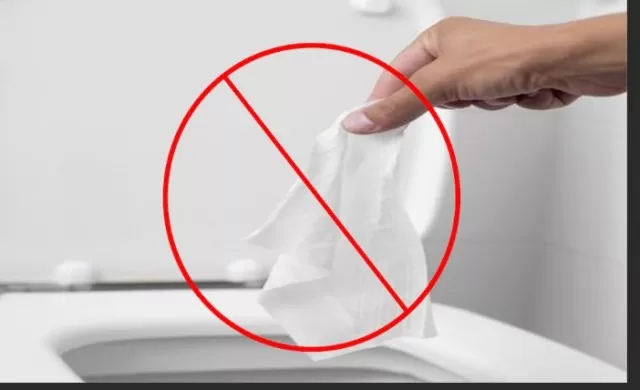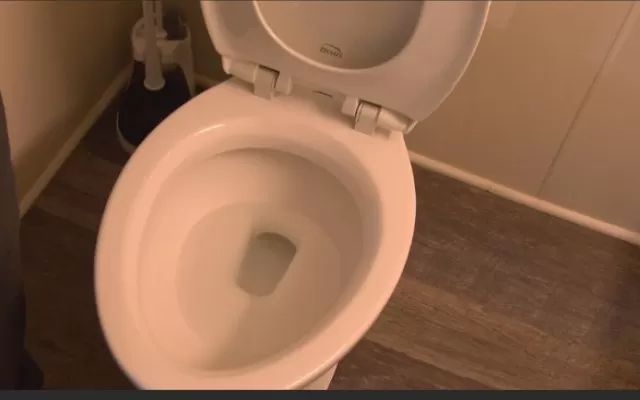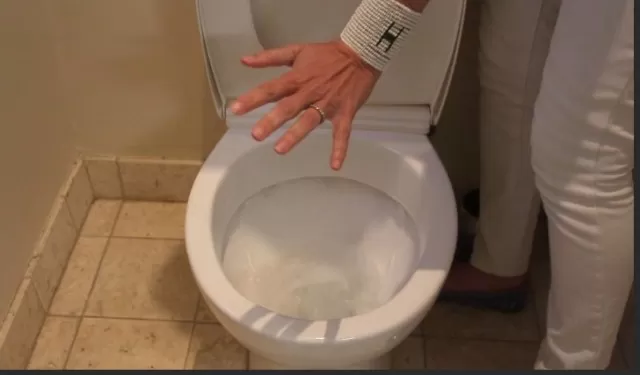Proper Toilet Etiquette: Items to Never Flush Down the Toilet. To maintain the proper functioning of your plumbing and sewer system, it is crucial to dispose of certain items correctly and avoid flushing them down the toilet.
Flushing inappropriate items can lead to clogged pipes, sewer backups, and environmental pollution. Here are some common items that should be disposed of in the trash instead:
Reconsidering the Flushability of Moist Towelettes: Beware of Potential Toilet Blockages

Despite their claims of being “flushable,” it is strongly advised against disposing of most moist towelettes in the toilet.
These wipes do not break down in water, resulting in potential clogging issues and the risk of sewer lines becoming overwhelmed if prompt action with a plunger is not taken.
It is crucial to exercise caution when using these wipes, even if they are marketed as “flushable.” Despite the claims, they pose a significant risk to the plumbing system. When flushed down the toilet, these non-disintegrating wipes can accumulate and create blockages along the pipes. Over time, these blockages can lead to backups, causing inconvenience, costly repairs, and potential damage to the sewage infrastructure.
To avoid such issues, it is highly recommended to refrain from flushing these wipes down the toilet. Instead, they should be disposed of in a proper waste bin or designated receptacle. Taking this responsible approach will help maintain the functionality and longevity of the plumbing system, as well as prevent unnecessary inconveniences for both homeowners and public facilities.
Furthermore, raising awareness about the non-flushability of these wipes is essential. Clear and informative signage in bathrooms, educational campaigns, and public awareness initiatives can help educate individuals about the potential risks associated with improper disposal. By encouraging proper waste management practices, we can collectively minimize the strain on sewage systems and promote a healthier, more sustainable environment.
Proper Disposal of Feminine Hygiene Products: A Cautionary Reminder
Public restrooms often display signs cautioning against flushing feminine hygiene products, and for good reason.
Pads and tampons, specifically designed to absorb and retain fluids, do not dissolve when flushed down the pipes. To ensure appropriate disposal of these personal items, it is recommended to wrap them in toilet paper and dispose of them in the designated garbage can.
The Resilience of Paper Towels: An Important Consideration for Disposal

Manufacturers of paper towels often emphasize the strength and durability of their products.
However, this durability comes with a downside: since the paper towels are designed to maintain their strength when in contact with liquids, they do not break down easily like toilet paper does. Consequently, flushing used paper towels down the toilet can lead to potential clogging issues.
It is advised to always discard used paper towels in the appropriate trash receptacle.
Proper Disposal of Condoms: Responsible Waste Management
Even professional plumbers find it unpleasant to extract used condoms from obstructed sewer lines.
Due to their composition of non-biodegradable latex, these contraceptives take years to break down, making them unsuitable for introduction into the water treatment system. To ensure responsible waste management, it is recommended to wrap a used condom in toilet paper and dispose of it in an appropriate waste receptacle.
Proper Disposal of Disposable Diapers: Preventing Plumbing Issues

Even a small-sized disposable diaper has the potential to cause toilet clogs.
Therefore, it is important to follow the appropriate disposal method for dirty diapers. Begin by rolling up the soiled diaper and securing it with the adhesive strips.
Next, place the diaper inside a small plastic bag and securely seal it. Finally, dispose of the bagged diaper in the designated trash bin, ensuring it is properly sealed to prevent any odors or leakage.
*The information is for reference only.